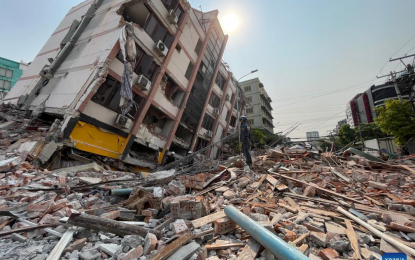Scientists Warn World May Have Reached 1.5°C Warming Threshold
Scientists warn that the world may have entered a new era of global warming beyond 1.5°C, bringing more extreme weather, biodiversity loss, and human suffering. The 1.5°C threshold, set by the Paris Agreement, signals increased risks of heatwaves, floods, and rising sea levels.

A Dangerous Milestone
According to newly released climate data, global temperatures over the past 12 months have consistently hovered around or above 1.5°C compared to pre-industrial levels. Some months in 2024 and early 2025 even exceeded this limit, sparking fears that the world is entering a new phase of irreversible climate change.
“This is not a future concern—it’s happening now,” said Dr. Michael Carter, a climate scientist at the Intergovernmental Panel on Climate Change (IPCC). “If we continue at this pace, we are likely to permanently exceed the 1.5°C target within the next few years, bringing more devastating climate impacts.”
What Does 1.5°C Mean?
The 1.5°C threshold was established under the 2015 Paris Agreement, where nearly 200 countries pledged to limit global temperature rise well below 2°C, with an aspirational goal of keeping it at 1.5°C. Scientists and policymakers agreed that surpassing this limit could trigger catastrophic changes, such as:
- More intense and frequent heatwaves
- Increased flooding and storms
- Accelerated Arctic ice melt and rising sea levels
- More severe wildfires and droughts
- Biodiversity loss and threats to food security
Recent climate models predict that if warming exceeds 1.5°C for several years, it could push the planet into a self-reinforcing warming cycle, making it nearly impossible to reverse.
Extreme Weather on the Rise
Signs of climate disruption have become increasingly evident in recent years. 2023 and 2024 witnessed record-breaking heatwaves, hurricanes, and wildfires. The El Niño phenomenon exacerbated temperature rises, while glaciers in Antarctica and Greenland continued melting at alarming rates.
“The impacts of crossing 1.5°C are already being felt,” said Professor Laura Chen, a climate researcher at the University of Oxford. “We’re seeing once-in-a-century floods and wildfires happening every few years. Coastal cities are preparing for rising sea levels, and agricultural yields are dropping due to prolonged droughts.”
Political and Economic Consequences
The growing likelihood of permanently exceeding 1.5°C also puts pressure on world leaders to accelerate their climate commitments. Governments and industries are now being urged to reduce carbon emissions more aggressively, shift away from fossil fuels, and invest in renewable energy sources.
However, political divisions and economic challenges have slowed progress. Countries like the United States, China, and India—the world’s biggest emitters—are struggling to balance climate policies with economic growth. Meanwhile, developing nations, which contribute the least to global emissions, are suffering the worst consequences.
“There is no time left for half-measures,” said UN Secretary-General António Guterres in a recent climate summit. “Governments and corporations must take immediate, bold actions to reduce emissions and accelerate the transition to a green economy.”
Can We Reverse the Trend?
While breaching 1.5°C is concerning, climate experts emphasize that strong global action can still prevent further warming. Solutions include:
- Phasing out fossil fuels and expanding renewable energy sources
- Implementing carbon capture technologies
- Reducing deforestation and increasing reforestation efforts
- Enhancing climate resilience through improved infrastructure
- Strengthening international climate agreements
Despite these potential solutions, some scientists warn that current climate policies remain insufficient to meet the Paris Agreement goals. Without drastic reductions in greenhouse gas emissions, the world could face 2°C or more of warming by 2050, leading to far more severe consequences.
A Call for Urgent Action
As scientists continue to track global temperature trends, the message is clear: the world is on a dangerous path, and immediate action is needed to prevent a climate catastrophe. Whether governments, corporations, and individuals respond with urgency will determine the future of the planet for generations to come.
What's Your Reaction?












/https://tf-cmsv2-smithsonianmag-media.s3.amazonaws.com/filer_public/54/66/546650fa-26a4-40fd-8d6d-5a7a04540f81/rosetta2.png)
:max_bytes(150000):strip_icc():focal(999x0:1001x2)/robert-prevost-050825-1-39395418ab494da5a3a700c9478e66c8.jpg)















































format(webp))
format(webp))

























